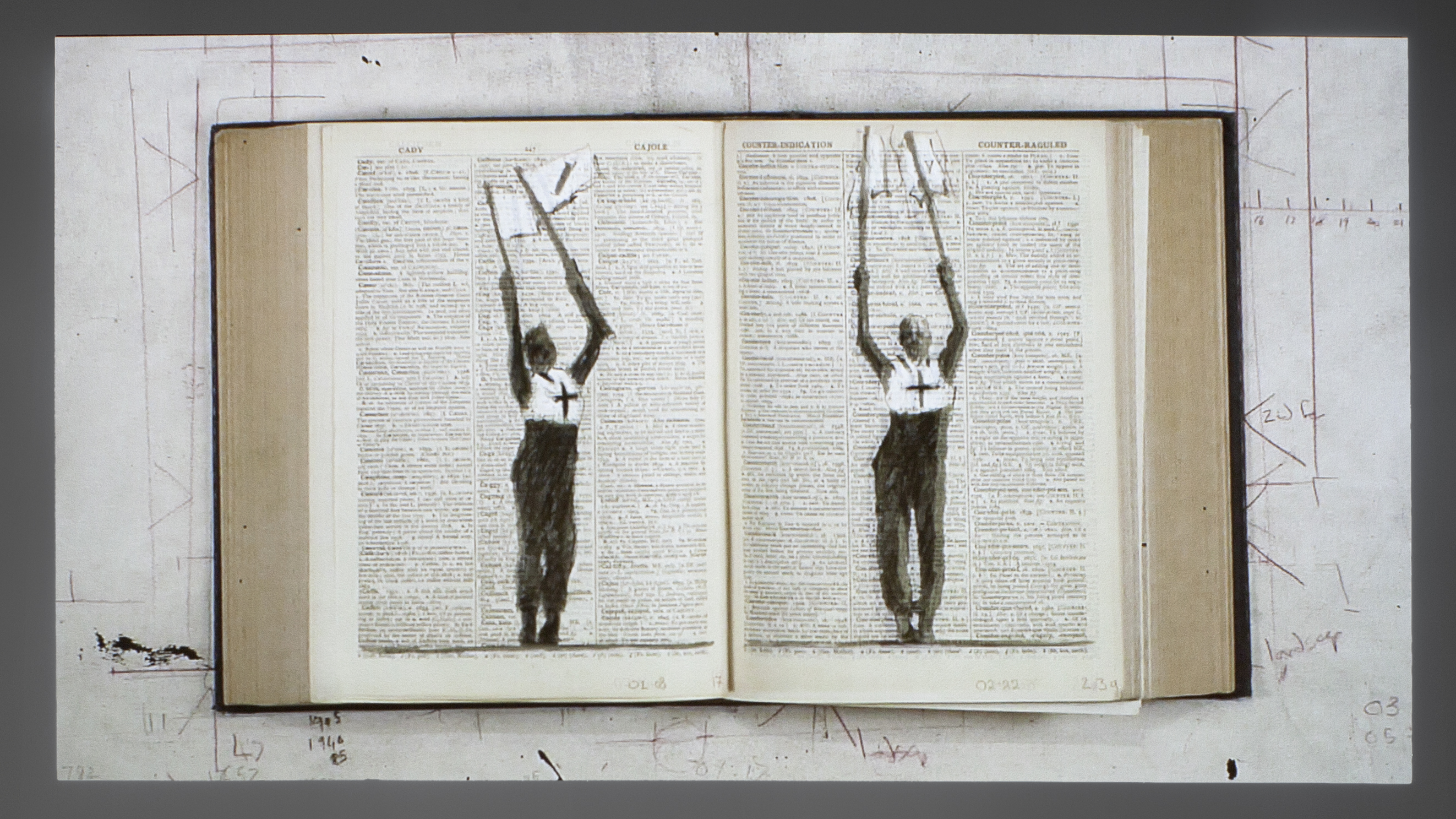
WILLIAM KENTRIDGE (Still From), Second-hand Reading, 2013 HD video, approximately 7 min. Courtesy of the artist and Marian Goodman Gallery.
Deutsches Haus at NYU presents “Five Theses on the Public Sphere,” a talk by Professor Laura Bieger, our current DAAD Visiting-Scholar at Deutsches Haus at NYU.
The current crisis of democracy reminds us how firmly the public sphere is grounded in reading and readership. Counterintuitive as this assumption might seem in our visually inclined media age, Laura Bieger expounds it in five theses. Studying the public’s continuous investment in reading and readership is indeed a pressing task at a time when printed matter ceases to be the unrivaled foundation of our reading culture while the public sphere is undergoing its perhaps gravest transformation since the invention of the printing press. Yet if scholars tend to equate the rise of modern mass media with the decline of the public sphere—that institution on which democratic societies so crucially depend—her aim is to take a less biased stance. What if structural changes such as the recurring transformations of the public sphere testify to the fact that democratic orders are open to inner revision and renewal? Open in ways that make them inherently vulnerable, yes, but that also afford modes of existence that are of vital use for those living in democracies—and that are never ever unmediated. It is this structural disposition that prompts the five theses to be unpacked in her talk.
(1) Organizing ourselves as publics is a text-based mode of democratic existence, which raises fundamental questions about what texts are, how they relate to each other and other mediated forms, especially images, and how these relations participate in the constitution of the public sphere. (2) Readers and media are co-actors in the constitution of the public sphere. (3) The public sphere shares this constitution with the literary field. (4) The two domains are structurally interlinked through historically specific institutional and media networks in which text-reader-relations are forged and transformed. (5) If transformations in the public sphere and the literary field are bound to affect each other, determining the governing rules and structural parameters which regulate the transactions between these two sites demands an extended notion of literary, institutional, and media agency.
Laura Bieger is Chair of American Studies, Political Theory and Culture at Groningen University. She is the author of Ästhetik der Immersion (transcript 2007), which examines public spaces from Washington’s government district to the Las Vegas Strip that assert their function aesthetically—by turning world-image-relations into immersive spectacles. In another book, Belonging and Narrative (forthcoming), she considers the need to belong as a driving force of literary production and the novel as a primary place and home-making agent. Her essays and reviews have appeared in New Literary History, Amerikastudien/American Studies, Studies in American Naturalism and ZAA. She has held teaching and research positions at Freie Universität Berlin, Universität Wien, Albert-Ludwigs-Universität Freiburg, the University of California at Berkeley, and IFK Wien. During her time at Deutsches Haus at NYU she is conducting research on her current project The Reading Public & the Power of Literature.
Events at Deutsches Haus are free and open to the public. If you would like to attend this event please send an email to [email protected]. As space at Deutsches Haus is limited, please arrive ten minutes prior to the event to ensure you get a good seat. Thank you!
“Five Theses on the Public Sphere”: A Talk by Laura Bieger is a DAAD-sponsored event.
